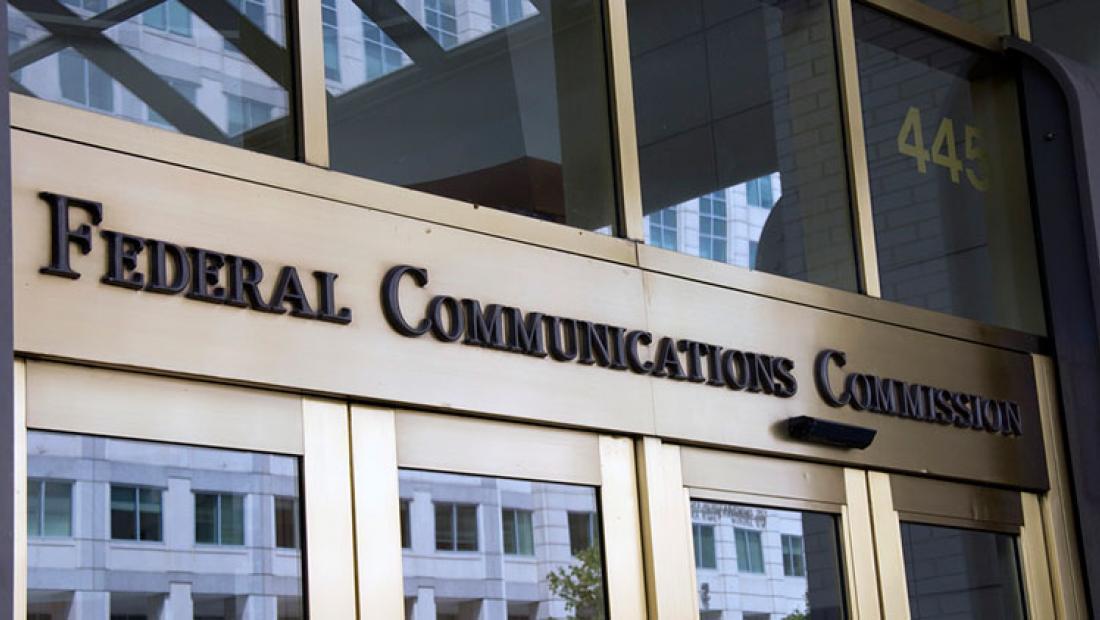FCC Votes to 'Streamline' Small Cell Deployments

The smarter way to stay on top of broadcasting and cable industry. Sign up below
You are now subscribed
Your newsletter sign-up was successful
A politically divided FCC voted Wednesday (March 22) to eliminate historic preservation and environmental reviews on small cell (5G next-generation) wireless rollouts. Everyone agreed speeding 5G wireless rollouts was important, but not on how to do it.
The order, which was approved 3-2 by the Republican majority, 'clarifies' that such small-cell rollouts don't trigger those environmental or historic reviews, streamlines the reviews of the larger infrastructure deployments that do trigger such reviews, and sets shot clocks on reviews.
In essence, makes those small cell buildouts easier and less costly by reducing what the FCC majority signaled were unnecessary impediments to winning the race to 5G.
FCC chairman Ajit Pai said freeing spectrum will be pointless if carriers can't deploy new infrastructure, pointing out that the reviews had been created with 200-foot towers in mind. "You can stick with the regulatory status quo or you can have 5G," he said. "You can't have both."
Pai said there has been a lot of talk about advancing 5G, but that talk is cheap and that the FCC was now taking action.
Pai called the item a giant leap forward in updating the rules and creating faster and more reliable wireless service that ultimately means American leadership in 5G.
The chairman said that the order was produced after engagement, including personally, with Tribal nations, as well as state and local representatives.
The smarter way to stay on top of broadcasting and cable industry. Sign up below
He pointed out that the item also creates a standardized set of information so tribes can more easily make determinations of the impact of rollouts earlier in the progress.
The meeting featured a protestor who briefly talked over Pai as he delivered his comments from the bench.
Commissioner Michael O'Rielly said he wholeheartedly support the time, which he said would reduce unreasonable delays and outrageous fees.
Of those fees, he said: "Some tribes sought money and consulting rules for areas that their ancestors never traveled as a means to raise revenues and address tribal unemployment, a jobs program if you will."
O'Rielly said he would have preferred the item also provided more relief for the larger infrastructure rollouts.
Commissioner Brendan Carr, who motormanned the item, called the order "a chance for the FCC to demonstrate our commitment to seeing the United States and American consumers win the race to 5G."
"We will not win this race—consumers in the U.S. will not realize these benefits—if we don’t do our part at the FCC. That means moving aggressively to free up new spectrum bands, as we’ve been doing, and moving with equal dispatch to ensure that providers can deploy the infrastructure necessary for consumers to use all that spectrum," said Carr.
Related: Dems Hammer Carr Over 5G Order
"Next generation commercial wireless services deserve next generation wireless infrastructure policies," said Commissioner Mignon Clyburn. "On that we can agree." But she said she had been "forced" to dissent because the potential adverse impact of the rules on Tribal Nations, historic sites, and the environment "were severe and had yet to be fully addressed." Clyburn had called for delaying the vote but that did not happen.
Commissioner Jessica Rosenworcel agreed the order should not have been voted now and that there were other ways to address the issues and speed rollouts. She said the item only guarantees that the crude effort will leave a trail of legal challenges in its wake.
"If we want to lead in 5G, we need to modernize our approach to wireless infrastructure," she said. "We need to streamline the process for the deployment of small cells because over the next eight years we will require as many as 800,000 of them." But, she said, "[w]hat we have here will not help us lead—or even be 5G ready. Our work deserves a delay so we can fix these deficiencies and move forward together." That did not happen.
She said those deficiencies include 1) cutting tribal authorities from their rightful role reviewing facilities, 2) removing small cells from the National Historic Preservation Act and National Environmental Policy Act, and 3) removes many larger wireless facilities from environmental oversight."
She also pointed out that not a single tribe had supported the FCC's action.
Contributing editor John Eggerton has been an editor and/or writer on media regulation, legislation and policy for over four decades, including covering the FCC, FTC, Congress, the major media trade associations, and the federal courts. In addition to Multichannel News and Broadcasting + Cable, his work has appeared in Radio World, TV Technology, TV Fax, This Week in Consumer Electronics, Variety and the Encyclopedia Britannica.

